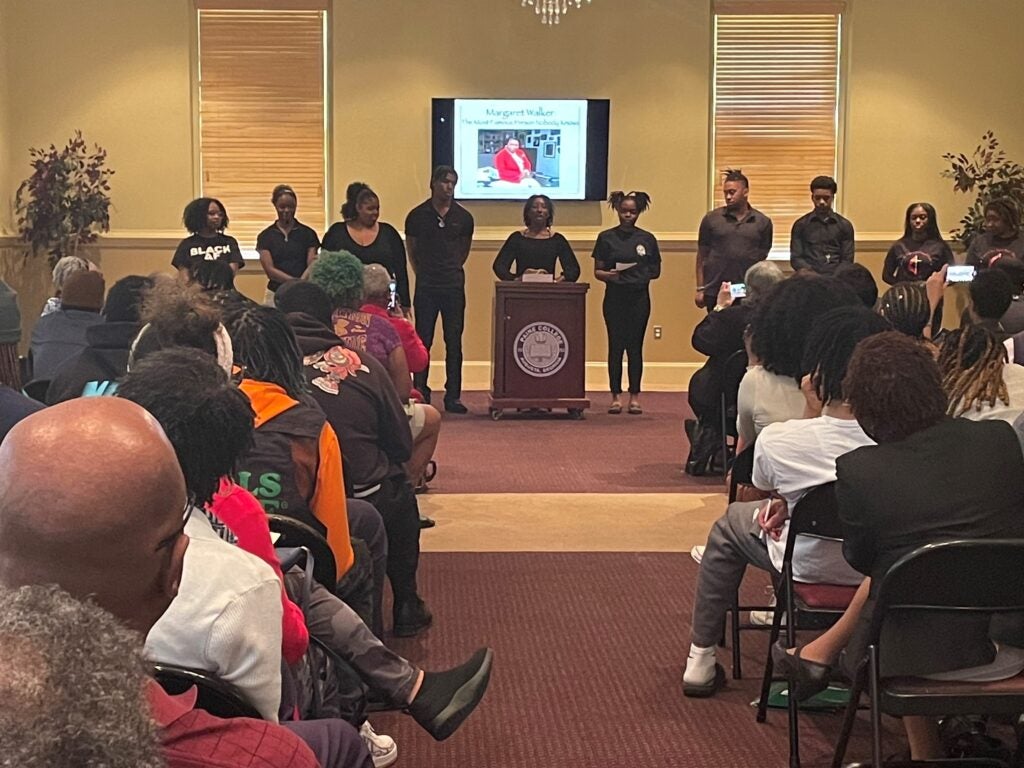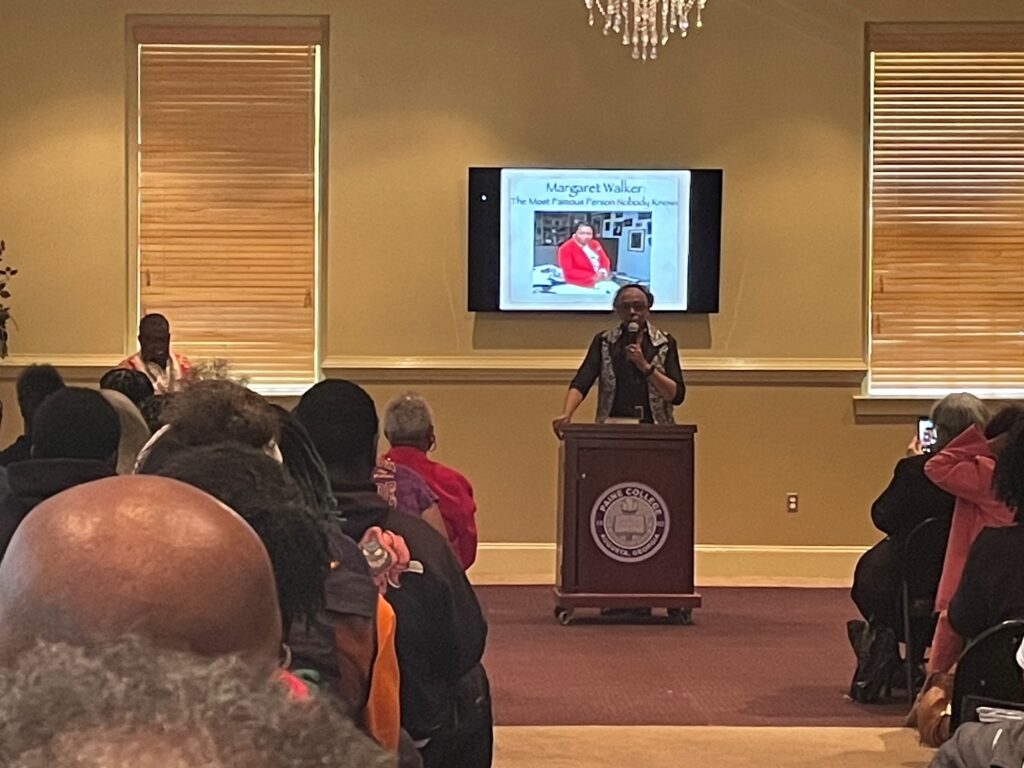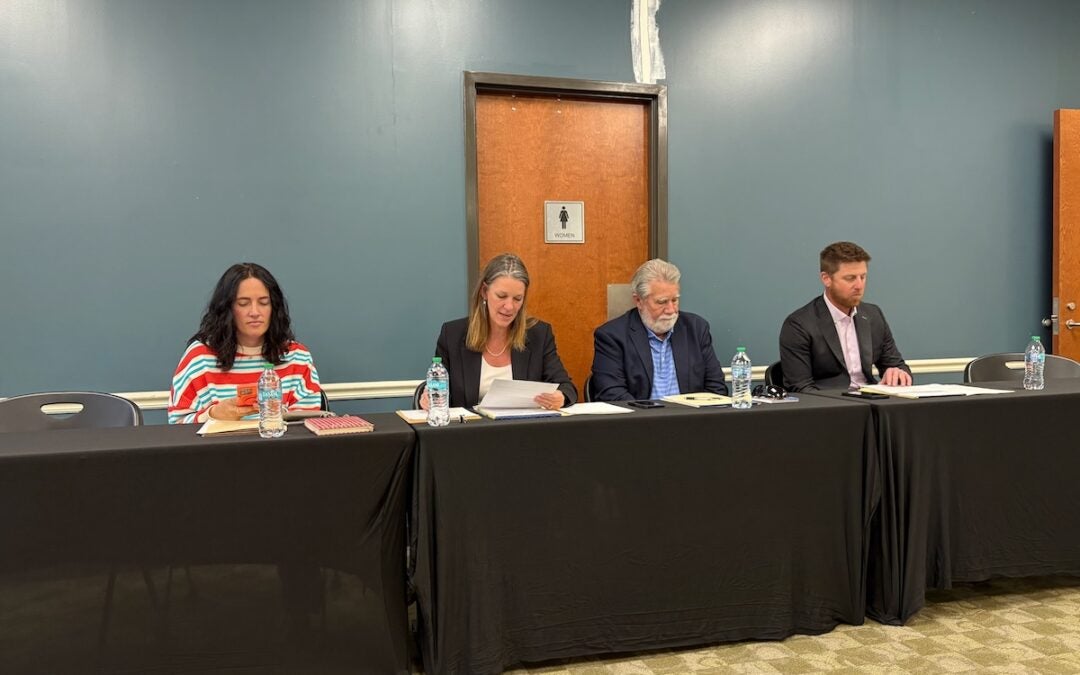Paine College welcomed scholar and educator Maryemma Graham on Wednesday afternoon for a presentation about Margaret Walker, renowned poet, writer and pioneer of African American studies.
“When we ask, she comes,” said Paine College president Cheryl Evans about Graham, an Augusta native and alumna of Paine College. The Distinguished Professor of English at the University of Kansas recently published a biography of Walker, “The House Where My Soul Lives.”
The talk and book signing, held in the Paine College Candler Memorial Library, was coordinated by the school in partnership with the Augusta University English and World Languages Department, the Lucy Craft Laney Museum and the Book Tavern, where Graham also spoke and signed copies of her book the evening prior.

“We are standing on many, many shoulders, both in terms of the academy and the public world,” said Graham, early in the discussion. “Walker figures centrally in that, and yet, she is the most famous person that nobody knows.”
Here, Graham was referencing a moniker often attributed to her about Walker, but actually originated by Walker’s close friend, the poet Nikki Giovanni. Graham spoke on several highlights of Walker’s literary career, including her innovative contributions to the study of Black literature.
Walker published her first book, “For My People,” a collection of poems, in 1942 after it won the Yale Series of Younger Poets Competition (she was the first Black writer to ever do so). The title piece in that work, a mystical and triumphant meditation on the struggles of African Americans, has remained a literary classic, what Graham called “another kind of national anthem.”
In 1966, she published the novel “Jubilee,” a fictionalized account of her great-great grandmother’s life as an enslaved woman.
“It started this whole era of what we call the neo-slave narrative,” Graham said. “Tony Morrison’s ‘Beloved’ came 20 years after Walker published this book; so when that book was published, people forgot about what had come before. But Walker showed the way.”

Walker started teaching literature at the HBCU Jackson University in Jackson, Miss., in 1949. In 1968, she founded the Institute for the Study of History, Life, and Culture of Black People—now called the Margaret Walker Center.
Walker’s renown grew to where she was holding book signings and talks in Jackson, Miss., before multiracial audiences. In 1973 she hosted the Phyllis Wheatley Poetry Festival, which saw the convening of over 30 Black women writers, including Alice Walker and Audre Lorde.
Graham mentioned Walker’s 1978 lawsuit against author Alex Haley for some 150 instances of plagiarism in his book “Roots,” which was dismissed. The case would prove detrimental to her career.
“Once she sued Alex Haley, that was it,” said Graham. “She could never recoup her reputation.”
Graham would go on to assist Walker in editing several non-fiction works, including the essay collection “On Being Female, Black and Free,” published in 1997.
In the latter half of her career, Walker would archive many of her unpublished writings in the institute at Jackson State that now shares her namesake.
“This idea of what we call the public humanities, that’s Margaret Walker,” said Graham. “The notion of making sure this division between the community and the academy does not stop people from gaining access to knowledge. Knowledge belongs to the people.”
Skyler Q. Andrews is a staff reporter covering business for The Augusta Press. Reach him at skyler@theaugustapress.com.










